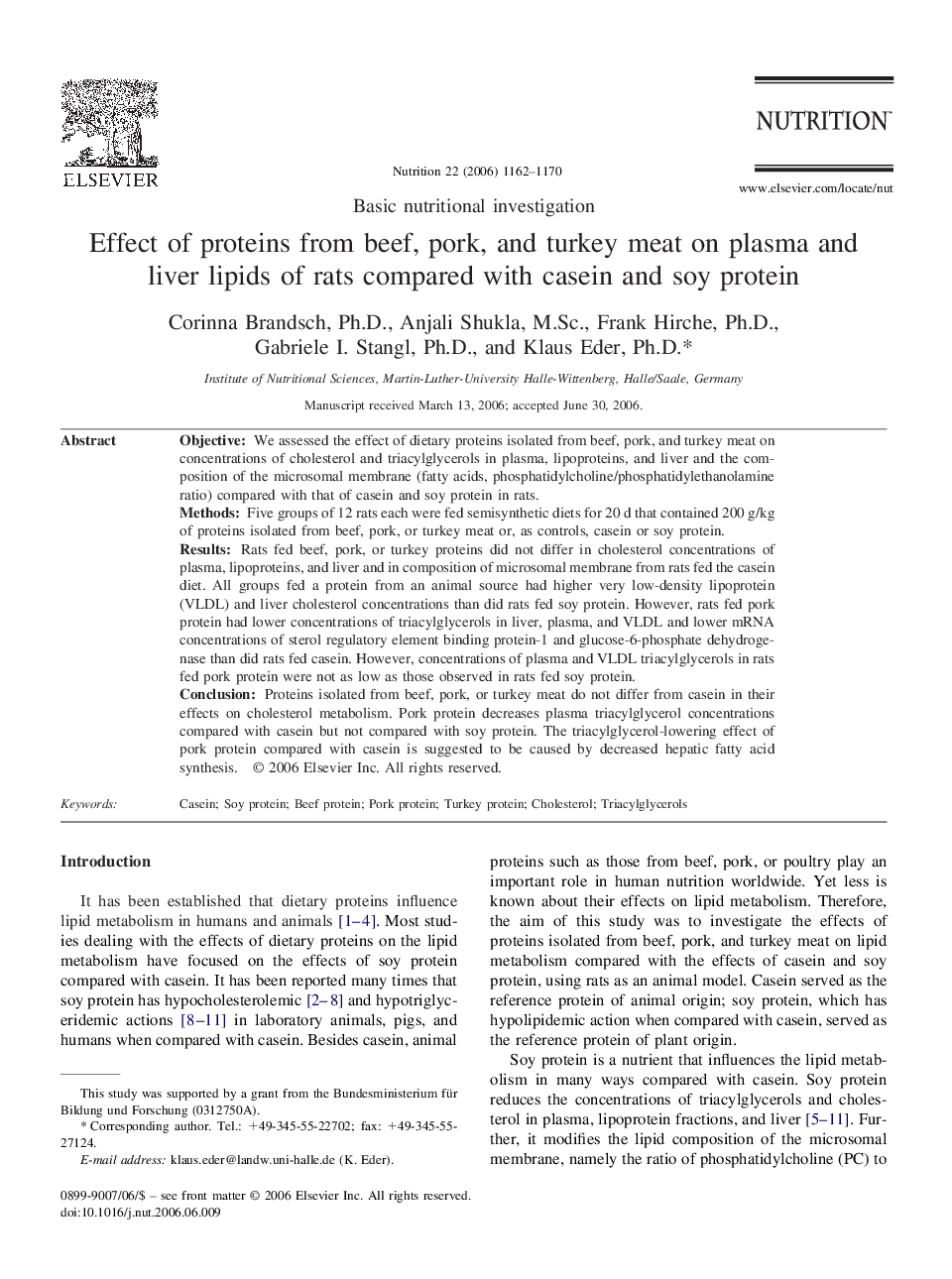| Article ID | Journal | Published Year | Pages | File Type |
|---|---|---|---|---|
| 3277687 | Nutrition | 2006 | 9 Pages |
ObjectiveWe assessed the effect of dietary proteins isolated from beef, pork, and turkey meat on concentrations of cholesterol and triacylglycerols in plasma, lipoproteins, and liver and the composition of the microsomal membrane (fatty acids, phosphatidylcholine/phosphatidylethanolamine ratio) compared with that of casein and soy protein in rats.MethodsFive groups of 12 rats each were fed semisynthetic diets for 20 d that contained 200 g/kg of proteins isolated from beef, pork, or turkey meat or, as controls, casein or soy protein.ResultsRats fed beef, pork, or turkey proteins did not differ in cholesterol concentrations of plasma, lipoproteins, and liver and in composition of microsomal membrane from rats fed the casein diet. All groups fed a protein from an animal source had higher very low-density lipoprotein (VLDL) and liver cholesterol concentrations than did rats fed soy protein. However, rats fed pork protein had lower concentrations of triacylglycerols in liver, plasma, and VLDL and lower mRNA concentrations of sterol regulatory element binding protein-1 and glucose-6-phosphate dehydrogenase than did rats fed casein. However, concentrations of plasma and VLDL triacylglycerols in rats fed pork protein were not as low as those observed in rats fed soy protein.ConclusionProteins isolated from beef, pork, or turkey meat do not differ from casein in their effects on cholesterol metabolism. Pork protein decreases plasma triacylglycerol concentrations compared with casein but not compared with soy protein. The triacylglycerol-lowering effect of pork protein compared with casein is suggested to be caused by decreased hepatic fatty acid synthesis.
